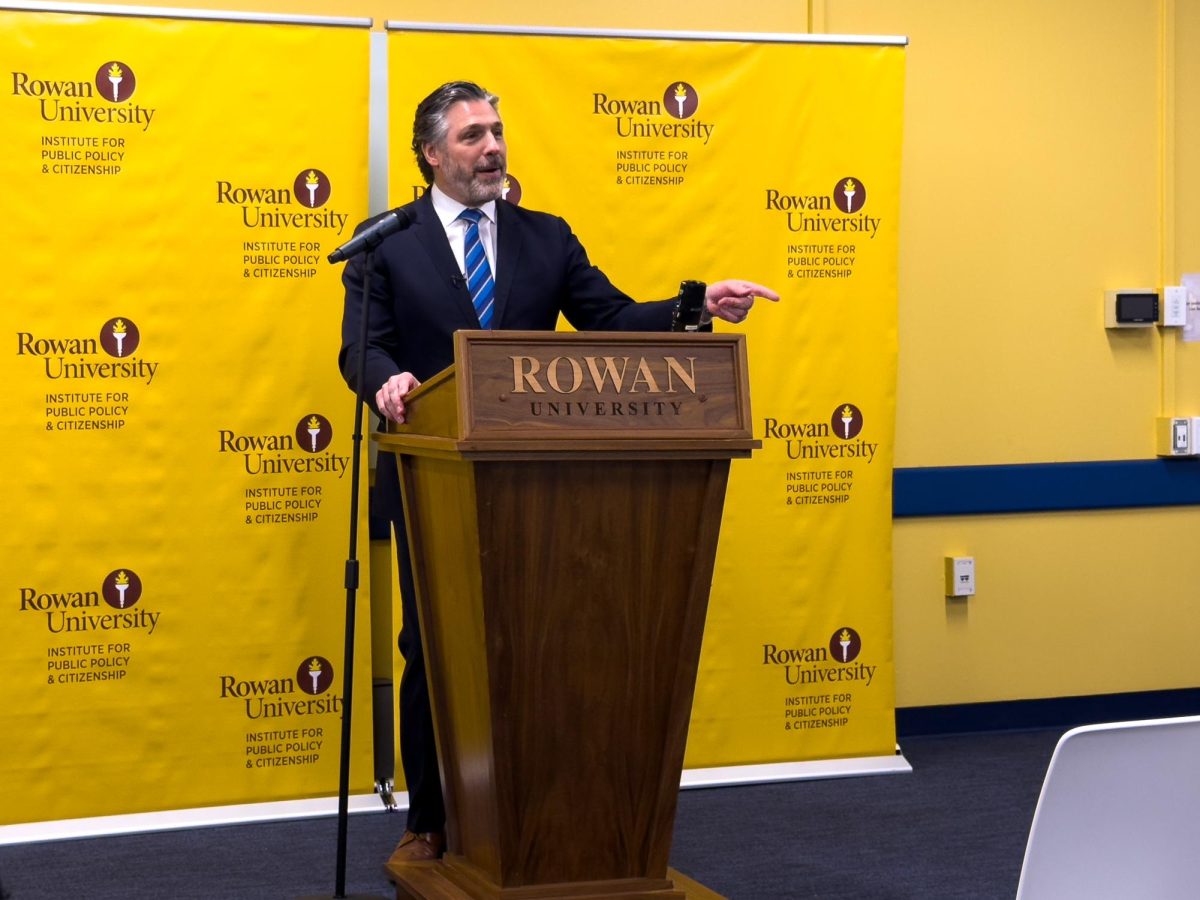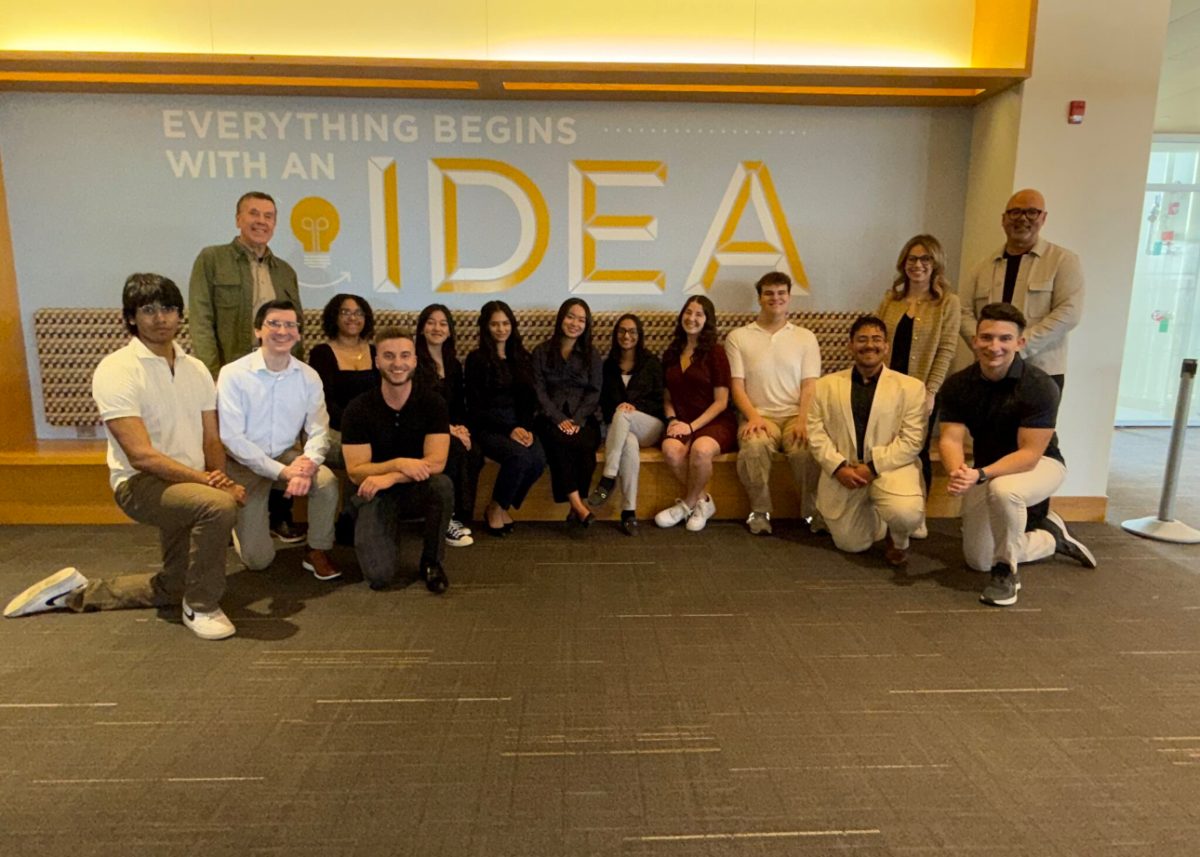Editor’s Note: This article has been updated for accuracy. The previous article stated that Fred Keating, president of the Rowan College of South Jersey, was speaking at the Board of Trustees meeting. It has been corrected to say that Bill Freind, Rowan University Faculty Senate president, was speaking.
In the Rowan Board of Trustees’ final meeting of the semester, the longest statement came from Rowan University Faculty Senate President Bill Freind, Ph.D, expressing concerns, held by himself and other Rowan faculty, on the impact this year’s election could have on higher education. Despite doubts on president-elect Donald Trump’s ability to enact the more extreme changes promised for his second term, such as discontinuing the Department of Education, Freind believed the sentiment behind these changes warranted expressing them to the board.
The most immediately concerning notion is the sentiment against diversity in higher education.
“One of the strengths of higher education is our diversity. We have people from a variety of backgrounds and from a variety of countries here of different immigration statuses. Some are naturalized American citizens, some are permanent residents, some are on temporary visas,” Friend said.
With Trump alluding to complete border closure in his opening days in office, there is a precedent for concern even to those with full citizenship status.
“A colleague of mine who is a native born citizen has taken to carry her passport with her just in case there’s an immigration sweep, and is telling her native born daughter the same thing,” Freind said.
These possibilities are compounded by anti-diversity, equity, and inclusion policies that are already in effect and growing in influence. Freind mentioned the University of North Texas, which banned any DEI offices, training, or statements in January as a result of Senate Bill 17, resulting in changes made to language and material used in the university’s courses.
“University of North Texas has banned any kind of group based on religious, gender, racial, ethnic identity. So that includes faculty senate committees on the role of women and LGBT folks. It also includes the North Texas Christian Network. Does anyone think that higher education is really being helped by banning Christians from getting together?” Freind said.
Another point of concern brought up was a trend for those in positions of power lacking proper experience, inside and outside of higher education. Freind mentioned cases such as former University of Florida President Ben Sasse, who was reportedly ousted from his position following an investigation that revealed $17 million in spending during the first 12 months of his 17 month tenure. Freind also professed concern about Robert F Kennedy Jr, Trump’s pick to head the Department of Health and Human Services whose anti-vaccine policies have sparked several concerns.
The solution Freind proposed to the board was not hypervigilance. “Don’t obey in advance. What we’ve seen some colleges do is try to get ahead of what they imagine these changes might be by making changes of their own. The University of Michigan is no longer requiring diversity statements. I think the better path is just to wait and see what happens and then respond accordingly.”
Another part of the solution Freind suggested was continuing to celebrate expertise in our culture. “This is not something that is off to the side. Expertise matters… This is a research university. We know what that means. Doing your own research means getting at least a master’s, ideally a doctorate, setting up a lab, or at least having the expertise to review the material. It does not mean checking social media or blog posts.”
What Freind made clearest was that, as an educator, these changes will not impact his teaching. “I can’t change anything that I teach. I’m just unable to do it, and it’s not because I imagine myself to be some kind of courageous free speech warrior. This is America. We don’t censor what goes on in classrooms.”
In a shifting cultural climate where some teachers have already needed to make changes to the classroom, Freind remains confident that higher education can and will maintain its status as the culmination of American education.
For comments/questions about this story DM us on Instagram @thewhitatrowan or email [email protected]























































































































































!["Working with [Dr. Lynch] is always a learning experience for me. She is a treasure,” said Thomas. - Staff Writer / Kacie Scibilia](https://thewhitonline.com/wp-content/uploads/2025/04/choir-1-1200x694.jpg)

















































